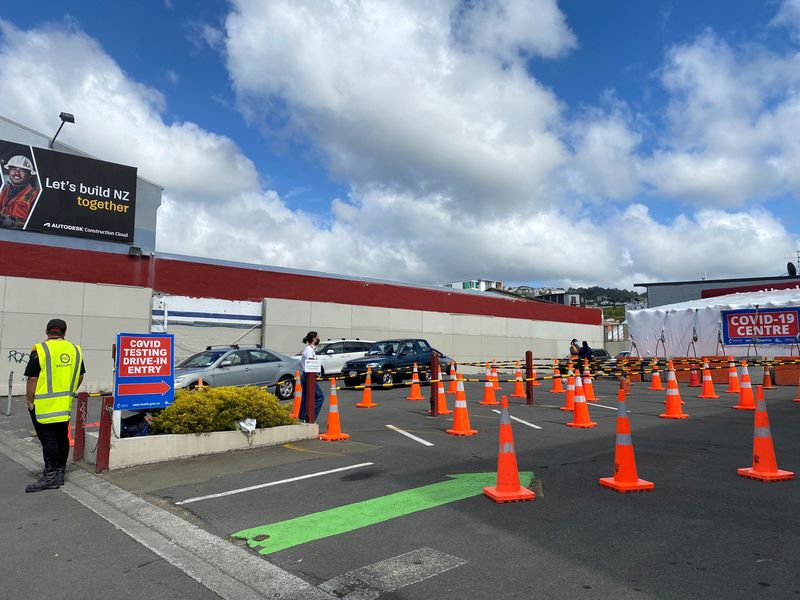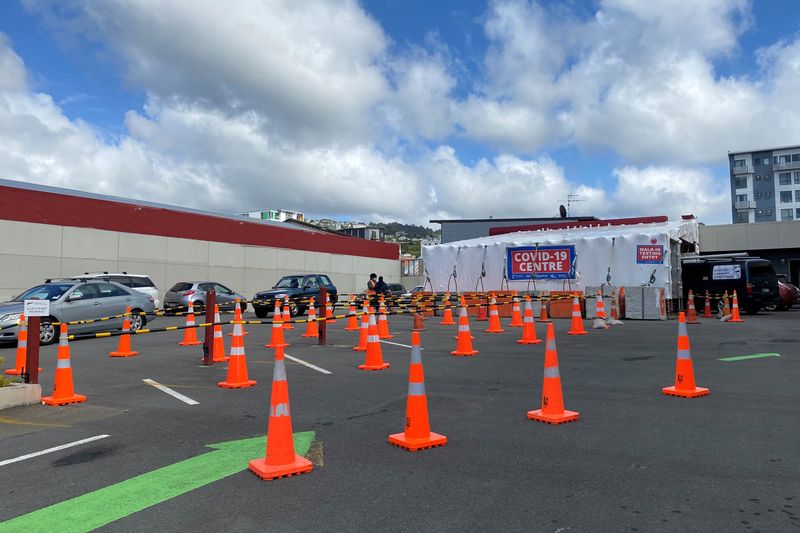By Lucy Craymer
WELLINGTON (Reuters) - New Zealand's tight COVID-19 bubble was once globally lauded but for local business, the strict border controls increasingly feel like a straitjacket as a lack on foreign workers and tourists squeezes the island nation's economy.
Meat processors have cut production, grapes are withering on vines and a dearth of international visitors has some tourism operators worried they will have to close shop by the time borders reopen later this year.
New Zealand's swift response to the pandemic, including the strict border controls, kept the country largely COVID-19 free until the end of last year, winning Prime Minister Jacinda Ardern's government strong praise at home and abroad.
But public anger over sustained domestic restrictions has since grown, reaching a climax last month during violent protests outside the nation's legislature in Wellington.
A closely watched poll on Thursday showed support for Ardern's Labour Party at its lowest since 2017.
That frustration has also broadened to the business community, who want the government to expedite its borders reopening.
"The government has done an exceptional job of getting us to where we are but people are tired and just want to get on with it," said Jude Cathcart, who runs a bike tour company, The Jollie Biker, in New Zealand's South Island.
Prior to the border closures, around 40% of Cathcart's customers were from Australia and she is keen to have them back.
Under a plan announced before the Omicron variant became widespread, a staggered easing of border controls would only see New Zealand fully open to vaccinated travelers in October.
But with Omicron now rampant in the community, business and agriculture see little value in staying shut off from the rest of the world and have increased calls to speed up the reopening.
"The situation is getting dire (for the tourist sector)," said Lynda Keene, chief executive of the Tourism Export Council of New Zealand, saying while restrictions were once right, the world had moved on.
New Zealand now averages 20,000 cases a day, out of a population of 5 million.
While the infection rate has jumped, hospitalisations and deaths are still remarkably low by global standards.
Since the start of the pandemic, the country has reported 208,000 infections and fewer than a hundred deaths.
New Zealand derives much of its economic income from agriculture and tourism and the lack of foreign labour is a particular headache for those in the seafood, viticulture and horticulture sectors.
Sirma Karapeeva, chief executive for the Meat Industry Association, said abattoirs had already been facing labour shortages because they couldn't bring in staff from the Pacific Islands or the Middle East. New local COVID-19 outbreaks are now adding to those labour headaches with infected staff having to isolate.
"They can't source more labour," she said. "They're having to work at lower capacity."
EARLY RELAXATION?
Chris Hipkins, New Zealand's COVID-19 response minister, said on Wednesday he expected a decision would be made by the end of the month about easing border restrictions.
The closure of border isolation facilities -– used for returning citizens and residents –- will start in April as vaccinated New Zealanders are now only required to isolate at home.
More broadly, the challenges of COVID-19 in the community are starting to hit the economy, through supply-chain breakdowns, staff being forced into isolation and worried consumers.
Logistical challenges, reduced food manufacturing capability and businesses having to take on more staff and pay for those off sick are adding to inflation pressures.

Electronic card spending in February fell 7.8% from January and consumer confidence has fallen to below its trough during the 2008 global financial crisis.
"It's the shock factor that you are likely going to get COVID in the next 12 months," said ANZ chief economist for New Zealand Sharon Zollner.
